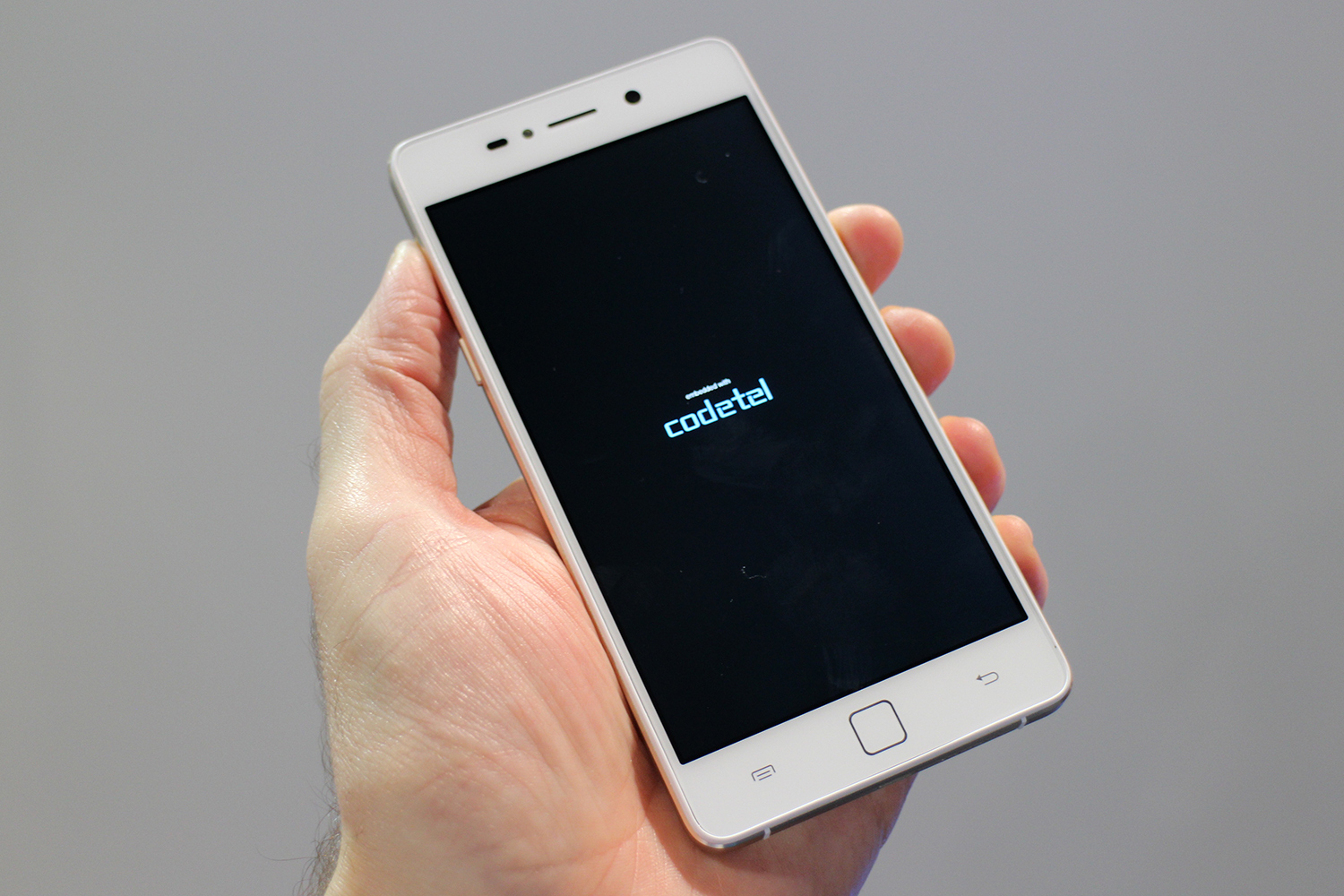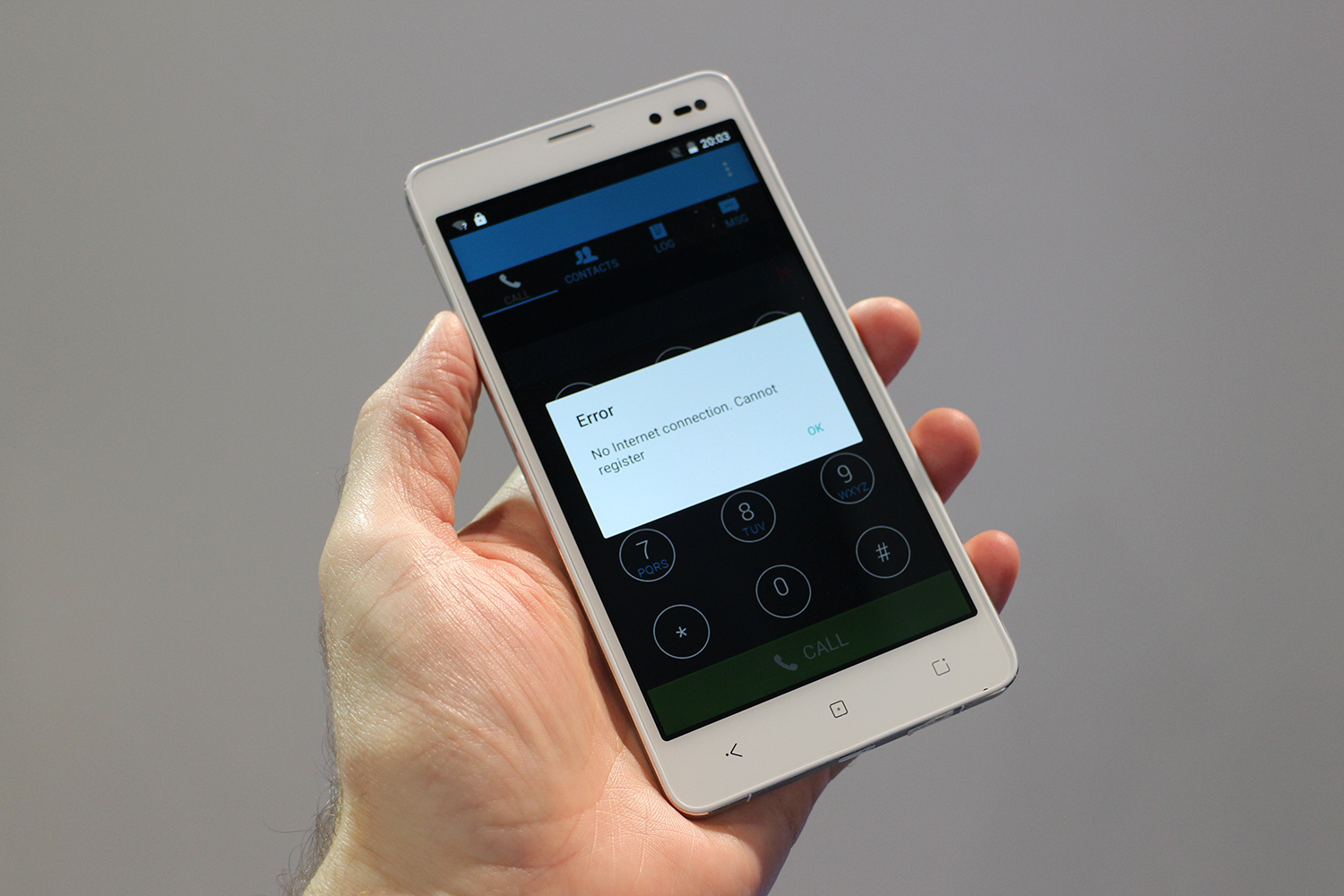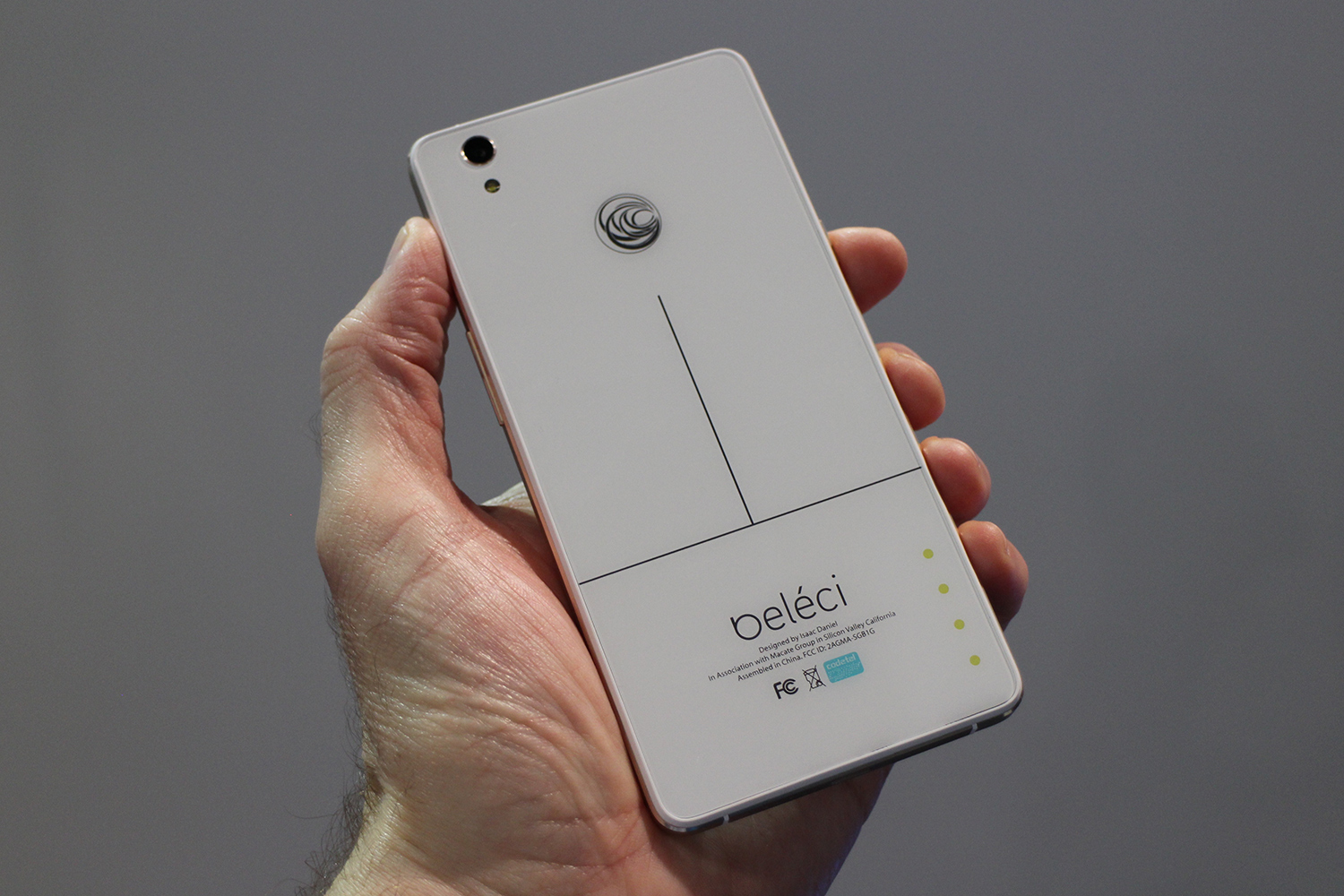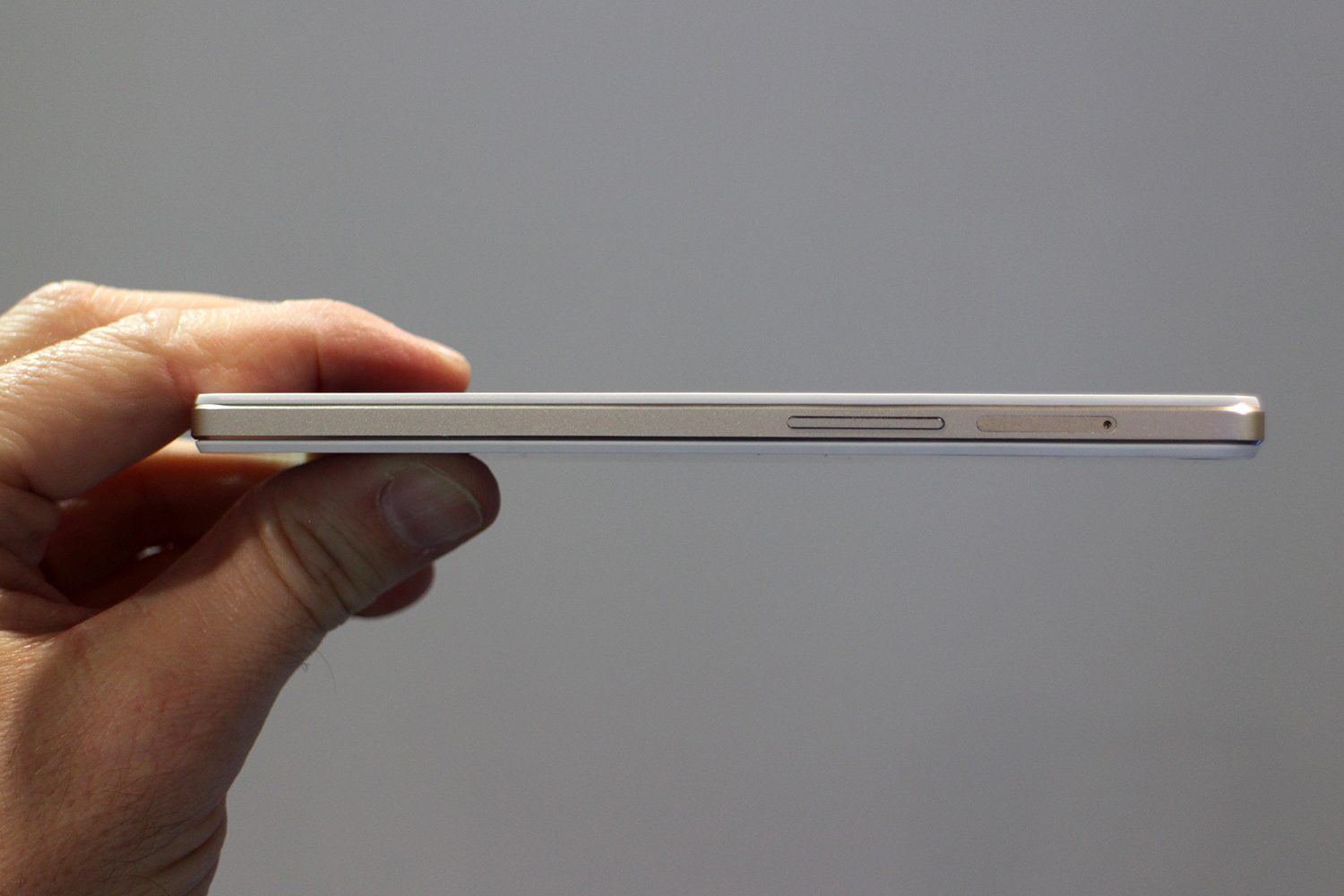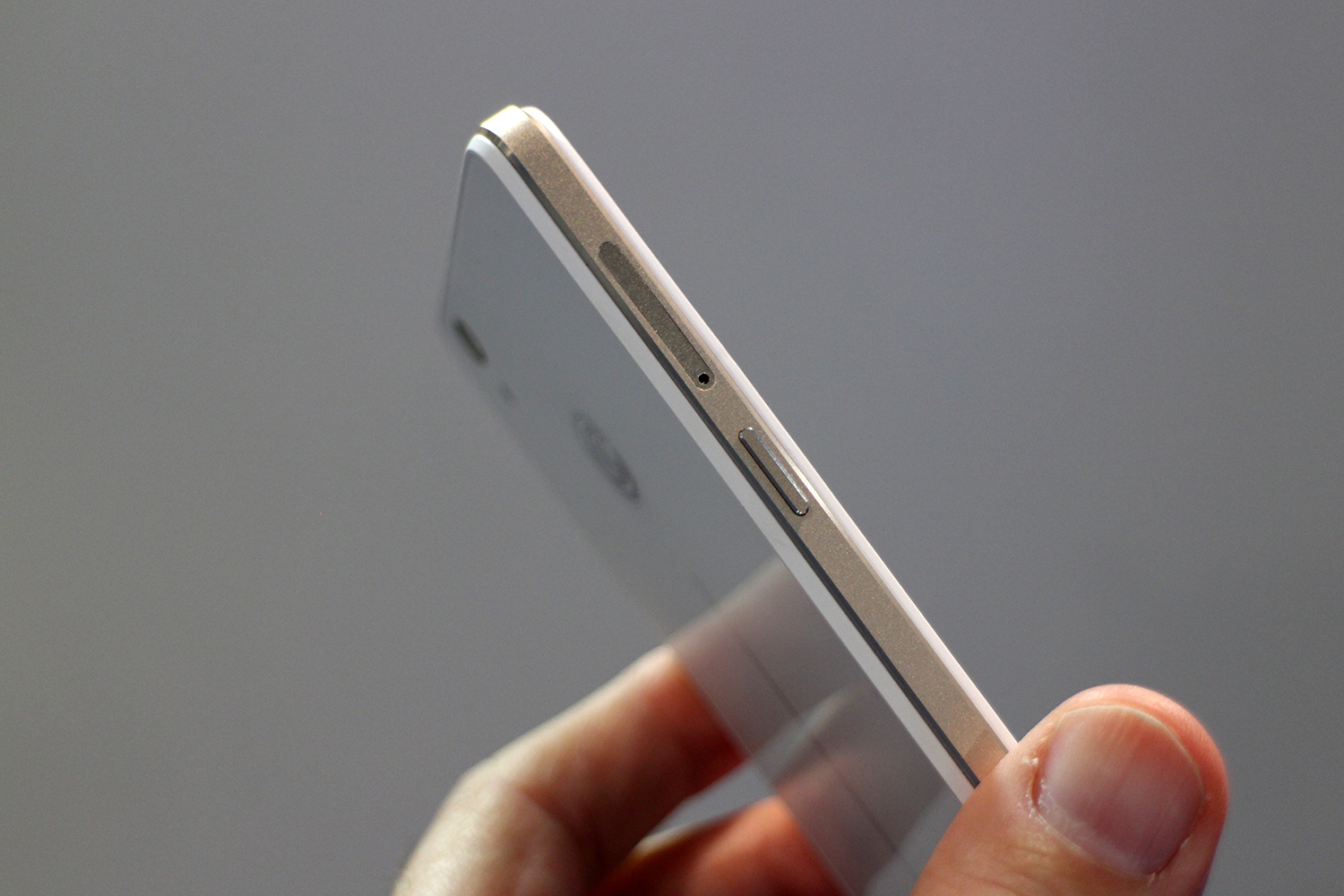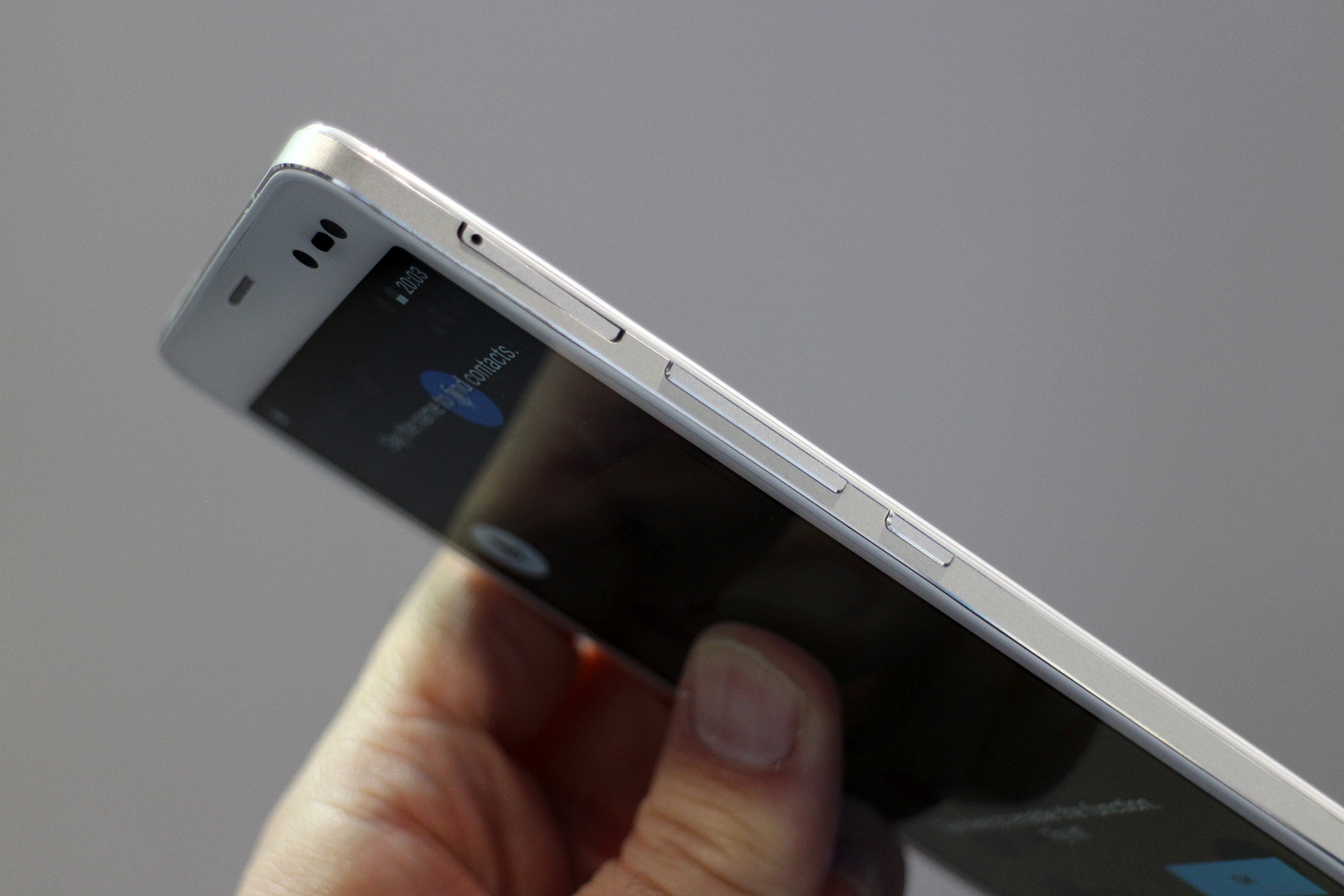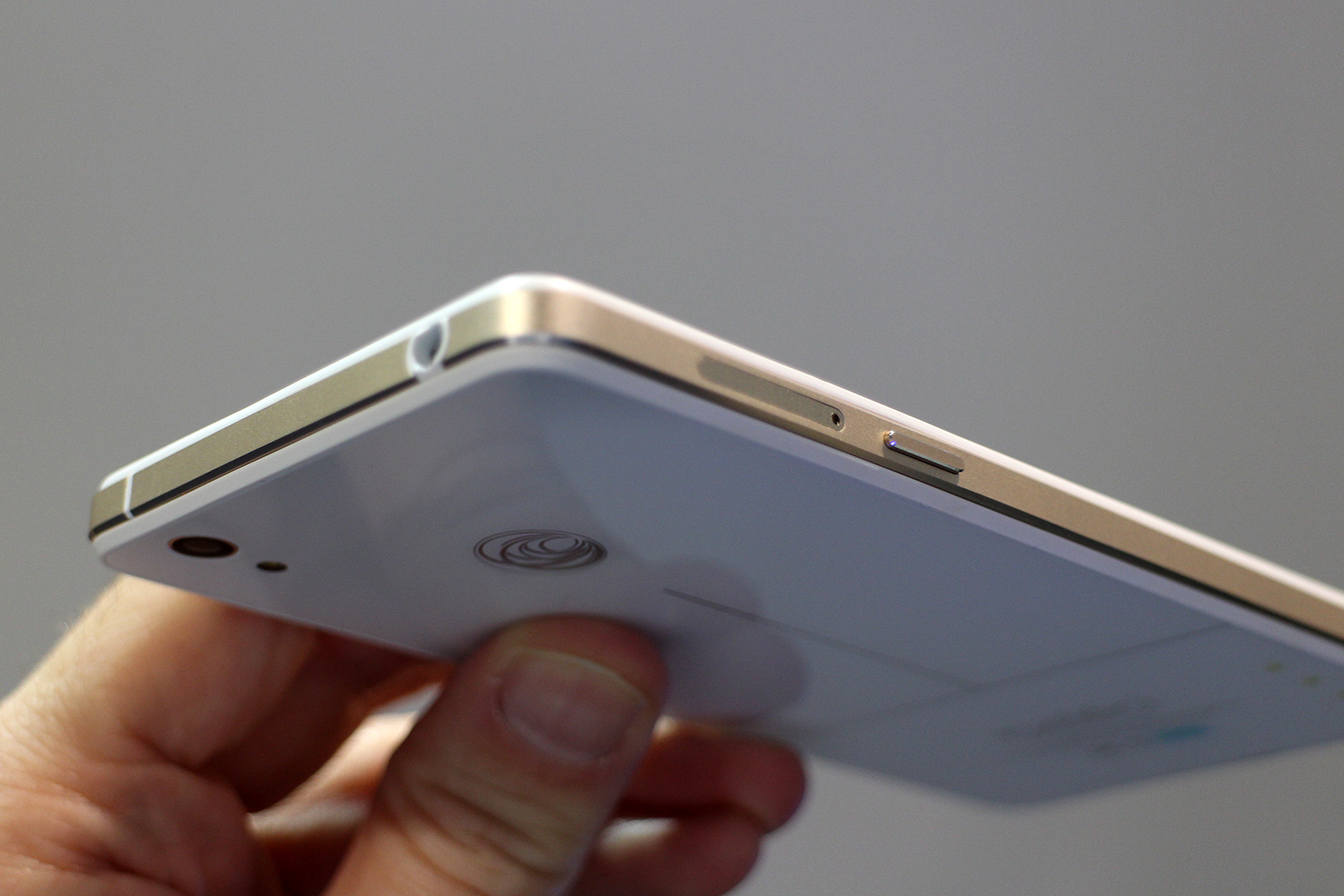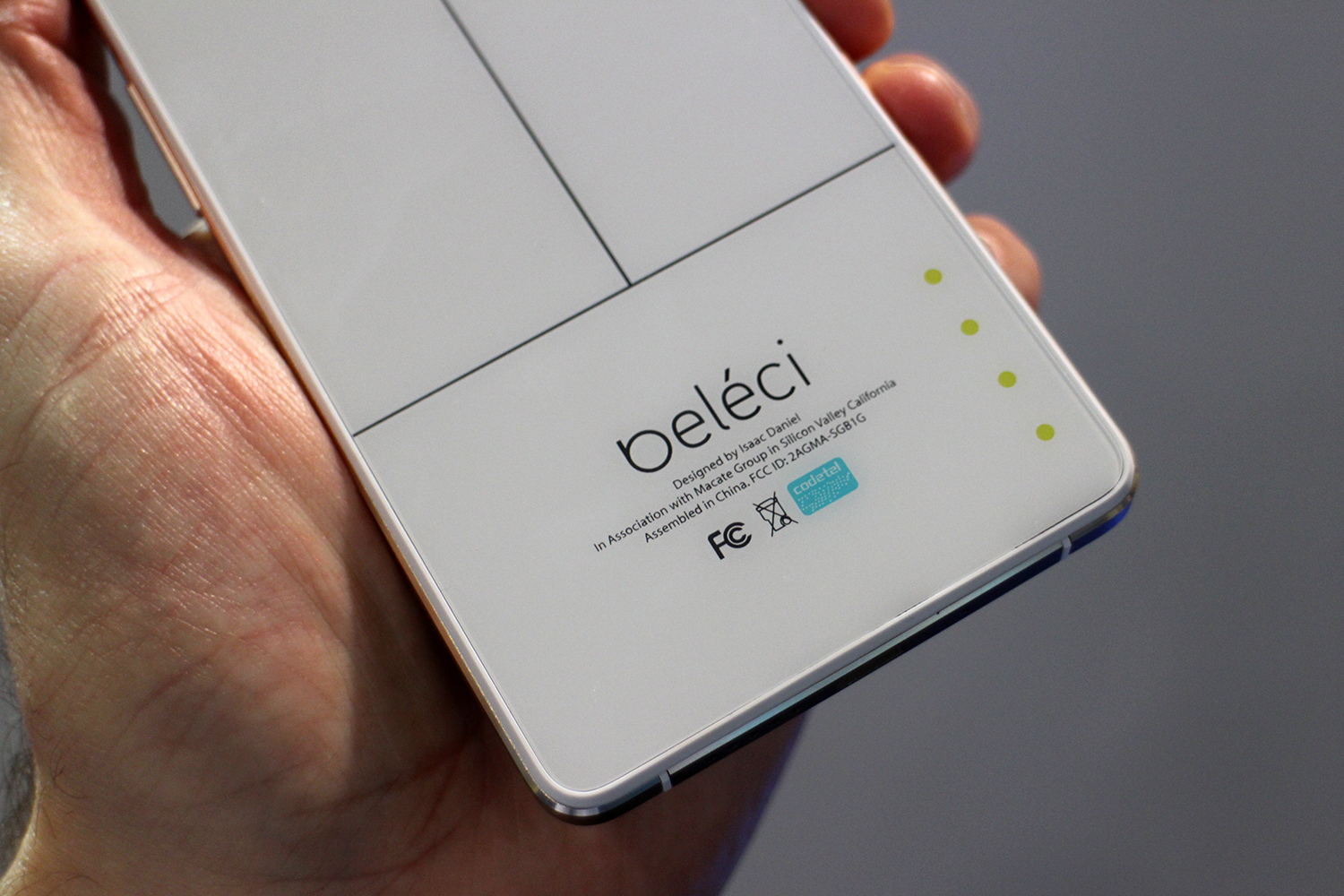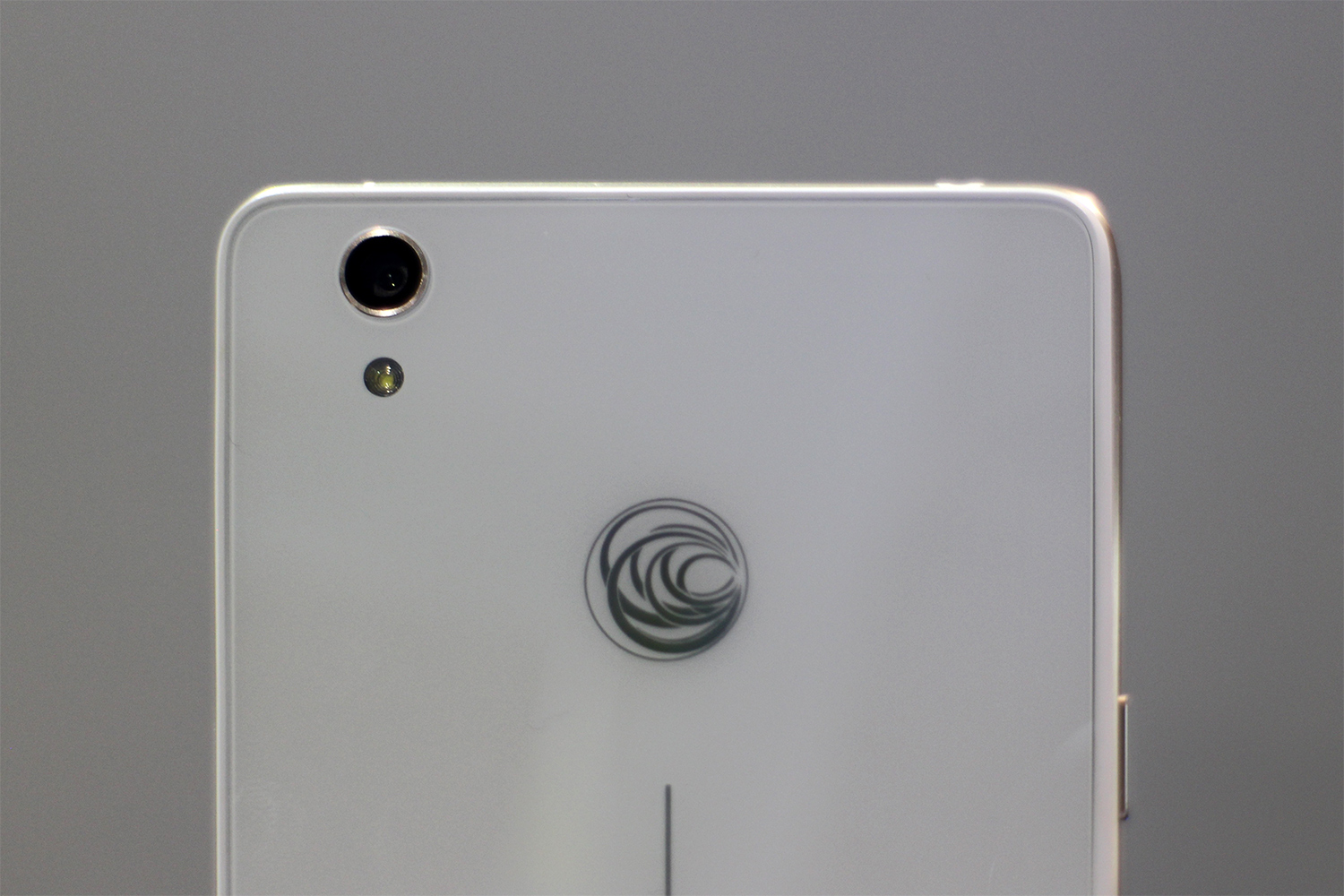If you’re anyone but Samsung, Apple, LG, or any other big-name smartphone manufacturer, the industry is a tough nut to crack. To be in with a chance you need to fill a niche, and right now, highly secure smartphones are a hot trend. The Gatca Elite is the latest device to try and fill that niche, joining not only BlackBerry but smaller names like Blackphone. It’s the product of Macate — a company name unfamiliar to most — which has baked its super secure Codetel software into the phone to help attract the business folk, and the paranoid.
Described as a ‘Cyberphone,’ the Gatca Elite runs on a heavily modified version of Android; however it’s only different on the inside, and the front end has been relatively untouched. The Android stack has been completely reworked, and is vastly more secure, with a selection of hardcore security features now baked in. Two were highlighted during our quick demo: Coin SL and and GeoLock.
The former is very clever. When a phone is stolen, the SIM card is usually quickly removed and another re-inserted, potentially giving the thief access to your files and data. Not so with the Gatca Elite. When the SIM card is taken out the phone instantly shuts down, and won’t restart if any other SIM is inserted.
GeoLock takes securing files to another level by locking access to a particular geographical location, such as your office or home. If the phone is stolen, unless it’s in the right place, the files will remain locked away. In addition to these two features, the Gatca Elite has facial recognition software, and encryption that meets 512-bit military standards. The email and message apps feature end-to-end encryption, and there’s another app that enables a 20-person encrypted video call.
The Gatca Elite is a big phone. It’s not particularly slim, relatively heavy, and not all that attractive in black. The white model looks better, with a subtly sparkly rear cover. It’s not a stunner at all, though, and borders on the anonymous in terms of design. This could be part of the plan, as we’re pretty sure thieves would probably pass it by in favor of a nearby iPhone. The specs aren’t mind-blowing — a MediaTek chip, a 13-megapixel camera, and a 5.5-inch 720p screen — but this is standard for secure phones, and at least usually results in improved battery life. Stock Android is very welcome, and the phone was speedy enough in our hands-on. However, we couldn’t try out the secure apps due to a lack of data connection. They won’t open without one.
If the thought of a phone that looks too dull to steal doesn’t really make you want to pop out and buy one, the company wants to tempt you with the Belici — a considerably more stylish version of the Gatca Elite. It’s reminiscent of the iPhone 5S or a Sony Xperia, with a glass rear panel and minimalist design. The final specs for the Belici are still being confirmed, and the prototype we saw didn’t power up; but it’s unlikely to be dramatically different from the Gatca Elite, and will come with all the security apps and features seen on the Elite.
What’s to stop you picking up one of these secure Android phones? In the case of the Gatca Elite, the price may put you off; and for the Belici, the price and lack of availability is the problem. The Gatca Elite is a massive $850 and can be pre-ordered now, while the Belici will come later this year and cost between $1,000 and $2,000. The Gatca Elite’s price is very close to the Blackphone, but like that device, your files are going to need to be very important, or a likely target for theft, to consider investing in one.
Highs
- Cool security features
- White model looks good
- Established name in security software
Lows
- Expensive
- Bland design
Editors' Recommendations
- Sharing files on Android is about to get much easier
- Google is killing your passwords, and security experts are (mostly) happy
- Your Google One plan just got 2 big security updates to keep you safe online
- Samsung saved your phone from a nasty security problem
- Google adds a private locked photos folder to iPhones for ‘personal’ photos
